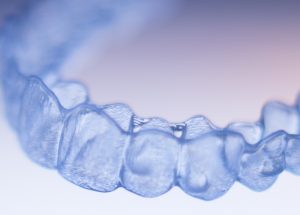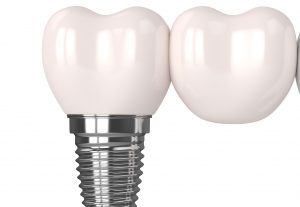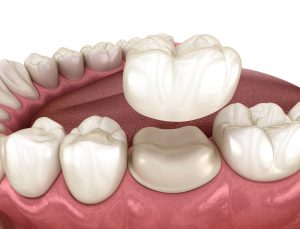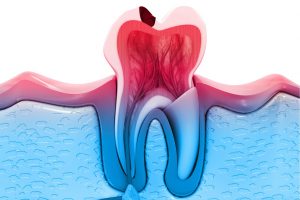 At least once in their lives, most people will have to (or already have had to) deal with a cavity in one of their teeth. Despite the fact that cavities, and mainly the tooth decay behind them, are largely preventable, it doesn’t take much for oral bacteria to grow numerous enough to infect your tooth structure. Fortunately, cavities can often be treated successfully and with minimal permanent changes to your tooth with a customizable tooth filling. However, not all cavities can be treated with a filling, and if you hesitate or allow your tooth decay to get worse, then it might not be enough to successfully save your tooth. (more…)
At least once in their lives, most people will have to (or already have had to) deal with a cavity in one of their teeth. Despite the fact that cavities, and mainly the tooth decay behind them, are largely preventable, it doesn’t take much for oral bacteria to grow numerous enough to infect your tooth structure. Fortunately, cavities can often be treated successfully and with minimal permanent changes to your tooth with a customizable tooth filling. However, not all cavities can be treated with a filling, and if you hesitate or allow your tooth decay to get worse, then it might not be enough to successfully save your tooth. (more…)
3 Ways Invisalign® Straightens Teeth Easier
 Crooked teeth are the kind of condition that’s often hard to ignore. If it’s serious enough to impact your smile’s appearance, then you’re likely to notice it every time you look in the mirror. Others are also likely to notice it, and for many people, it’s the appearance of their smiles that prompts them to seek orthodontic treatment to correct their crooked teeth. Fortunately, many people can accomplish that goal with the help of Invisalign® clear aligners, which can help you straighten crooked teeth more discreetly than traditional braces by remaining virtually invisible when placed over your teeth. (more…)
Crooked teeth are the kind of condition that’s often hard to ignore. If it’s serious enough to impact your smile’s appearance, then you’re likely to notice it every time you look in the mirror. Others are also likely to notice it, and for many people, it’s the appearance of their smiles that prompts them to seek orthodontic treatment to correct their crooked teeth. Fortunately, many people can accomplish that goal with the help of Invisalign® clear aligners, which can help you straighten crooked teeth more discreetly than traditional braces by remaining virtually invisible when placed over your teeth. (more…)
Does TMJ Disorder Have Specific Symptoms?
 TMJ disorder describes a dysfunction with your temporomandibular joint (TMJ) on either side of your jaw. Unlike more common dental concerns, the disorder doesn’t always mean the same thing. For example, your jaw joints might become chronically inflamed, forced out of alignment, damaged, or arthritic, depending on the unique factors surrounding your condition. Because the condition itself can vary between patients, the signs and symptoms of TMJ disorder can also be different, which is partly what makes it more challenging to know if you have it. However, there are some common symptoms that are associated with several different types of TMJ disorder, and if you experience them, they may be a hint that your jaw isn’t functioning properly. (more…)
TMJ disorder describes a dysfunction with your temporomandibular joint (TMJ) on either side of your jaw. Unlike more common dental concerns, the disorder doesn’t always mean the same thing. For example, your jaw joints might become chronically inflamed, forced out of alignment, damaged, or arthritic, depending on the unique factors surrounding your condition. Because the condition itself can vary between patients, the signs and symptoms of TMJ disorder can also be different, which is partly what makes it more challenging to know if you have it. However, there are some common symptoms that are associated with several different types of TMJ disorder, and if you experience them, they may be a hint that your jaw isn’t functioning properly. (more…)
Do You Have Obstructive Sleep Apnea?
 It isn’t always obvious when you have obstructive sleep apnea (OSA), despite the fact that its dominant symptom is hard to miss. Sleep apnea involves the repeated obstruction of airway while you sleep, and as it occurs, it causes you to snore exceptionally loudly until the moment you stop breathing. However, neither the snoring nor the interruption to your breathing pattern are guaranteed to wake you up fully, and the interruptions can continue without you realizing it. Today, we explore how you can determine if you might have sleep apnea, and how a custom-designed appliance from your dentist might be able to help you overcome it. (more…)
It isn’t always obvious when you have obstructive sleep apnea (OSA), despite the fact that its dominant symptom is hard to miss. Sleep apnea involves the repeated obstruction of airway while you sleep, and as it occurs, it causes you to snore exceptionally loudly until the moment you stop breathing. However, neither the snoring nor the interruption to your breathing pattern are guaranteed to wake you up fully, and the interruptions can continue without you realizing it. Today, we explore how you can determine if you might have sleep apnea, and how a custom-designed appliance from your dentist might be able to help you overcome it. (more…)
A Few Signs that Might Point to Gum Disease
 Gum disease, which is the condition that results when gingivitis gets worse, can become one of the biggest threats to your long-term oral health when it’s allowed to progress. On one hand, it can become your biggest risk of losing one or more teeth in the future. On the other, it can also negatively influence your overall health due to the inflammation that occurs in your oral tissues. Today, we examine a few of the signs that might warn you of gum disease’s presence, and why you should take the signs seriously as soon as you notice them. (more…)
Gum disease, which is the condition that results when gingivitis gets worse, can become one of the biggest threats to your long-term oral health when it’s allowed to progress. On one hand, it can become your biggest risk of losing one or more teeth in the future. On the other, it can also negatively influence your overall health due to the inflammation that occurs in your oral tissues. Today, we examine a few of the signs that might warn you of gum disease’s presence, and why you should take the signs seriously as soon as you notice them. (more…)
How Much Do You Know About Dental Implants?
 For most of your dental health care, your goal has been to preserve your healthy, natural teeth and oral tissues by preventing things that could compromise them. If an issue does develop, then the right restorative treatment may still help you preserve your healthy tooth structure. However, when tooth loss occurs, the goal of preserving your smile as effectively as possible doesn’t change. With dental implants, you can replace more of your natural tooth structure, including the roots that support your teeth, to avoid many of the serious concerns that develop from the loss of your teeth and their roots. (more…)
For most of your dental health care, your goal has been to preserve your healthy, natural teeth and oral tissues by preventing things that could compromise them. If an issue does develop, then the right restorative treatment may still help you preserve your healthy tooth structure. However, when tooth loss occurs, the goal of preserving your smile as effectively as possible doesn’t change. With dental implants, you can replace more of your natural tooth structure, including the roots that support your teeth, to avoid many of the serious concerns that develop from the loss of your teeth and their roots. (more…)
How CEREC Fully Restores Teeth in One Day
 Dental crowns are an important part of modern restorative dentistry, and have been for longer than many other treatments. The main reason is because of their ability to fully restore teeth that have been significantly damaged or compromised, or in some cases, exhibit serious cosmetic blemishes. Today, however, dental crowns have grown even more popular thanks to the help of CEREC technology, which significantly streamlines the process of designing and placing dental crowns. Rather than waiting for weeks as your crown is crafted before it can be placed, CEREC technology allows us to fully restore your tooth in just a single day. (more…)
Dental crowns are an important part of modern restorative dentistry, and have been for longer than many other treatments. The main reason is because of their ability to fully restore teeth that have been significantly damaged or compromised, or in some cases, exhibit serious cosmetic blemishes. Today, however, dental crowns have grown even more popular thanks to the help of CEREC technology, which significantly streamlines the process of designing and placing dental crowns. Rather than waiting for weeks as your crown is crafted before it can be placed, CEREC technology allows us to fully restore your tooth in just a single day. (more…)
Are There Different Levels of Tooth Decay?
 Many people recognize the terms tooth decay and cavities, and many have already had to deal with the condition at some point in their lives. However, for people who haven’t experienced it, or for those who were able to address their cavities with minor, minimally invasive treatment, the potential severity of tooth decay may not be so obvious. The truth is that tooth decay has many different levels, and the longer it’s allowed to progress, the greater damage it can cause to your tooth structure. (more…)
Many people recognize the terms tooth decay and cavities, and many have already had to deal with the condition at some point in their lives. However, for people who haven’t experienced it, or for those who were able to address their cavities with minor, minimally invasive treatment, the potential severity of tooth decay may not be so obvious. The truth is that tooth decay has many different levels, and the longer it’s allowed to progress, the greater damage it can cause to your tooth structure. (more…)
3 Reasons People Choose Invisalign® Clear Aligners
 Though many people don’t expect it, tooth misalignment can often become a problem long after your permanent teeth have fully developed. Even if they’ve always been straight before, one or more of several different conditions can sometimes force one or more of them out of alignment, requiring orthodontic correction to improve your smile. When this occurs, the surprising need for orthodontic treatment can often be confusing. Fortunately, we can often help make it a much more convenient and discreet process with the help of Invisalign® clear aligners. (more…)
Though many people don’t expect it, tooth misalignment can often become a problem long after your permanent teeth have fully developed. Even if they’ve always been straight before, one or more of several different conditions can sometimes force one or more of them out of alignment, requiring orthodontic correction to improve your smile. When this occurs, the surprising need for orthodontic treatment can often be confusing. Fortunately, we can often help make it a much more convenient and discreet process with the help of Invisalign® clear aligners. (more…)
Why TMJ Disorder Isn’t Always the Same
 TMJ disorder isn’t as recognizable a dental condition as tooth decay or gum disease. Therefore, many people who have it don’t even realize it, and may be surprised at the variety of aches and pains it may be responsible for. This is because TMJ disorder, which affects the temporomandibular joints on either side of your jaw, describe specific types of damage, misalignment, inflammation, or more troubles with one or both of your jaw joints. If you have TMJ disorder, then your dentist may be able to help you diagnose your condition and find an appropriate treatment for it, such as a custom-designed TMJ appliance. (more…)
TMJ disorder isn’t as recognizable a dental condition as tooth decay or gum disease. Therefore, many people who have it don’t even realize it, and may be surprised at the variety of aches and pains it may be responsible for. This is because TMJ disorder, which affects the temporomandibular joints on either side of your jaw, describe specific types of damage, misalignment, inflammation, or more troubles with one or both of your jaw joints. If you have TMJ disorder, then your dentist may be able to help you diagnose your condition and find an appropriate treatment for it, such as a custom-designed TMJ appliance. (more…)



